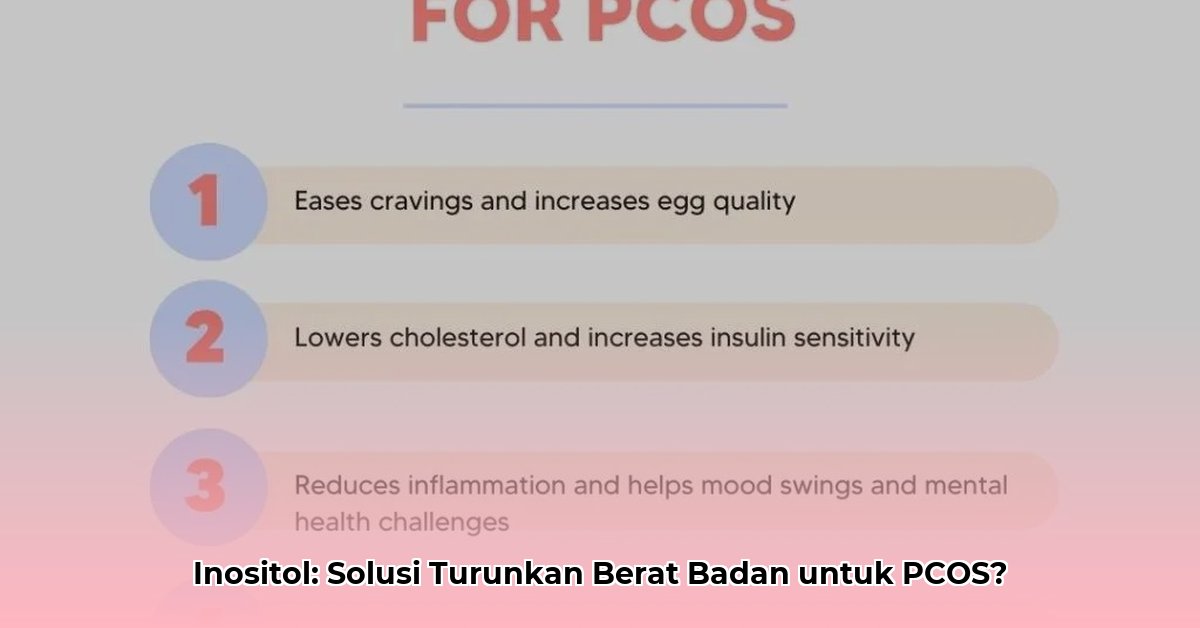
Introduction
Polycystic ovary syndrome (PCOS) affects many women, making weight loss challenging. Inositol, a nutrient found in foods like beans and grains, has gained attention as a potential aid. Let’s explore the facts and myths surrounding inositol for PCOS weight loss.
Inositol and PCOS Symptoms
Inositol, particularly myo-inositol and D-chiro-inositol, plays a crucial role in PCOS symptom management. Insulin resistance, a common PCOS issue, can be improved by inositol.
Inositol and Weight Loss
Studies suggest that inositol may improve insulin sensitivity and metabolic markers. However, the direct link between inositol and substantial weight loss is still under investigation.
Combination with Lifestyle Modifications
Inositol is not a magic bullet; it works best when combined with lifestyle modifications such as healthy eating and regular exercise.
Side Effects and Considerations
Inositol is generally safe and well-tolerated; however, side effects like nausea and fatigue may occur. It’s important to consult a healthcare professional before use.
Conclusion
Inositol has promise as an adjunct therapy for PCOS weight loss. It can support insulin sensitivity and hormone balance. However, realistic expectations are crucial; inositol is not a substitute for medical treatment or healthy habits.
Exploring the Connection between Inositol and PCOS Weight Management
Inositol and Metabolism
Inositol improves insulin signaling, allowing the body to use glucose more efficiently. This can reduce androgen production, which can contribute to weight gain in PCOS.
Hormonal Regulation
Inositol supports the production of hormones that regulate ovulation and menstrual regularity. This can indirectly impact weight loss by improving PCOS symptoms.
Myo-inositol and Egg Maturation
Myo-inositol helps eggs mature and become healthier, which can improve ovulation and hormonal balance, supporting weight loss efforts.
Inositol for PCOS Weight Management: What We Know
Promising Results
Studies have found that inositol supplementation can improve metabolic parameters and reduce belly fat and cholesterol levels in women with PCOS who are overweight.
Combination Therapy
Myo-inositol and D-chiro-inositol together may be more effective for PCOS weight management, improving insulin sensitivity and hormone balance.
Individualized Approach
The best dose and duration of inositol therapy may vary depending on individual needs. Talk to your healthcare provider about the right plan for you.
Unveiling Inositol’s Role in PCOS Weight Management: Insights and Evidence
Insulin Sensitivity
Inositol helps regulate insulin signaling, improving the body’s ability to use glucose, which can lead to weight loss.
Hormonal Imbalances
Inositol supports hormone production, including luteinizing hormone, which promotes ovulation. This can help regulate menstrual cycles and reduce PCOS symptoms.
Metabolizing Fat
D-chiro-inositol can enhance fat oxidation, supporting the body’s ability to burn fat for energy, which can aid in weight loss.
Ovarian Function
Myo-inositol plays a role in卵子 maturation, improving the quality of eggs and supporting regular ovulation, which can indirectly affect weight management.
Empowering PCOS Weight Loss: Understanding the Role of Inositol
Insulin Resistance and Metabolism
Inositol regulates insulin and improves metabolism, addressing the underlying causes of weight gain in PCOS.
Hormonal Balance and Fertility
Inositol supports hormonal balance and fertility, which can indirectly contribute to weight loss by reducing PCOS symptoms.
Lifestyle Modifications
Inositol works best when combined with lifestyle modifications, such as a healthy diet and regular exercise.
Dosage and Considerations
Consultation with a healthcare professional is essential for determining the right dosage and duration of inositol supplementation.
Realistic Expectations
Inositol is an adjunct therapy, not a replacement for medical treatment or lifestyle changes. It can support weight loss efforts but may not lead to substantial weight loss on its own.